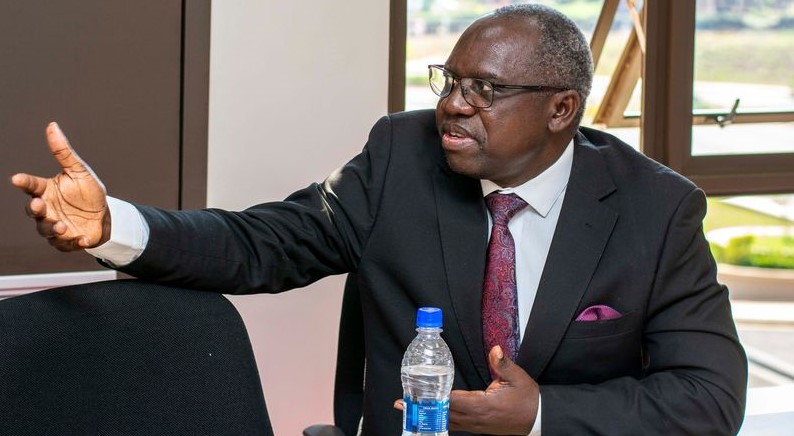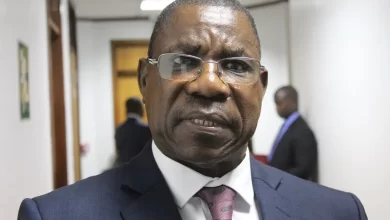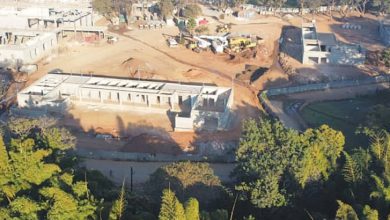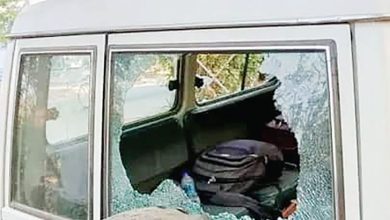‘Card must be supported’
The Centre for Agriculture Research and Development (Card), a think tank at Lilongwe University of Agriculture and Natural Resources (Luanar) has developed a digital record of all farming households in Malawi. The record includes geo-data (location) of every household which makes it easy for government to easily target farmers with interventions. Our Assistant Bureau Chief SUZGO CHITETE caught up with Luanar’s vice-chancellor Professor EMMANUEL KAUNDA, who says with support Card can do more for Malawi.

Q. Card, under a Ministry of Agriculture assignment, has developed a digital register of farming households in Malawi, the first of its kind. How does this change the game?
A. With this we envision i m p r o v e d r e s o u r c e allocation. The registration will ensure that resources reach the rightful farm households. Farm registration can also build trust between farmers and Ministry of Agriculture in fostering better collaboration and cooperation in implementing agricultural policies and programmes. It has also unearthed challenges farmers are facing and how government and other development partners could address such challenges, for instance, access to credit, insurance, and other formal financial services. Moreover, the geo-mapping of farm households and parcels will help government and other development partners improve disaster preparedness and resource allocating for quick and efficient support or extension services during droughts, El Nino, El Nina, floods, and pest infestation.
Q. The exercise, we are informed, was carried out within July. What immediate lessons do you draw from this?
A. It is pleasing to note that a local public firm can lead in national data collection using its own available local expertise. More collaboration is possible between government and other public research institutions. For instance, we have learnt that Card of Luanar can collaborate with government and other development stakeholders to deliver objectives or outcomes of national importance.
Q. Why do you think Card deserves more support from government and other partners?
A. Supporting a local public think tank can support government in creating jobs in the country. For instance, in this national registration of all farm households in Malawi, Luanar, through Card, managed to employ about 5 350 young Malawian graduates as research assistants. Of these research assistants, 29 percent of them are female while 71 percent are male. In terms of highest qualifications, 46 percent of the research assistants had Malawi School Certificates, followed by 34 percent having a first degree, and, lastly, 20 percent with a diploma.
Q. Are these research assistants graduates from Luanar or you picked anyone who met the requirements?
A. These are graduates from different Malawi-based public and private higher learning institutions, namely, Luanar, University of Malawi, Malawi University of Business and Applied Science (Mubas), Mzuzu University, Kamuzu College of Health Sciences, Catholic University, University of Livingstonia, Nkhoma, Adventist, DMI St John the Baptist University and Teacher Training Colleges, among others. When Card asked whether the research assistants were working or not, 86 percent of them indicated that they were not working prior to engagement suggesting that we have played a role in job creation in the country. Another interesting side of the people that we recruited is that they are from the areas where the farm household census was taking place, implying that Luanar-Card gave equal access even to those people living in rural communities.
Q. Beyond this milestone, what else do you plan to do?
A. We intend to enhance c o l l a b o r a t i o n a n d partnerships with government institutions, international organisations, private sector, and other academic institutions to conduct cutting edge research across the agri-food systems and supply chains to develop and innovate agricultural technologies that are climate smart but high yielding. We plan to advance a vibrant education and training that would train farm households in modern agricultural technologies and innovations to update farmers with the latest advancements in agriculture.
Another area is dissemination of the research findings done within and outside the universities to help farm households adopt best agricultural practices and improve their productivity as well as venture in agricultural commer c i a l i s a t ion . The University Council and Management have ensured that the research centres, including Card, are given much support to conduct research through locally available resources as well as collaboration with other like-minded institutions. In terms of human resources, the University has just filled all vacant positions of Research Fellows at Card so that it can raise over and above the national expectations of a public think tank that the government of Malawi and development partners created it for. Our vision as a University is to see Card lead in research that is locally driven with our own highest expertise as Malawians and conduct cutting edge research in the agricultural sector.




